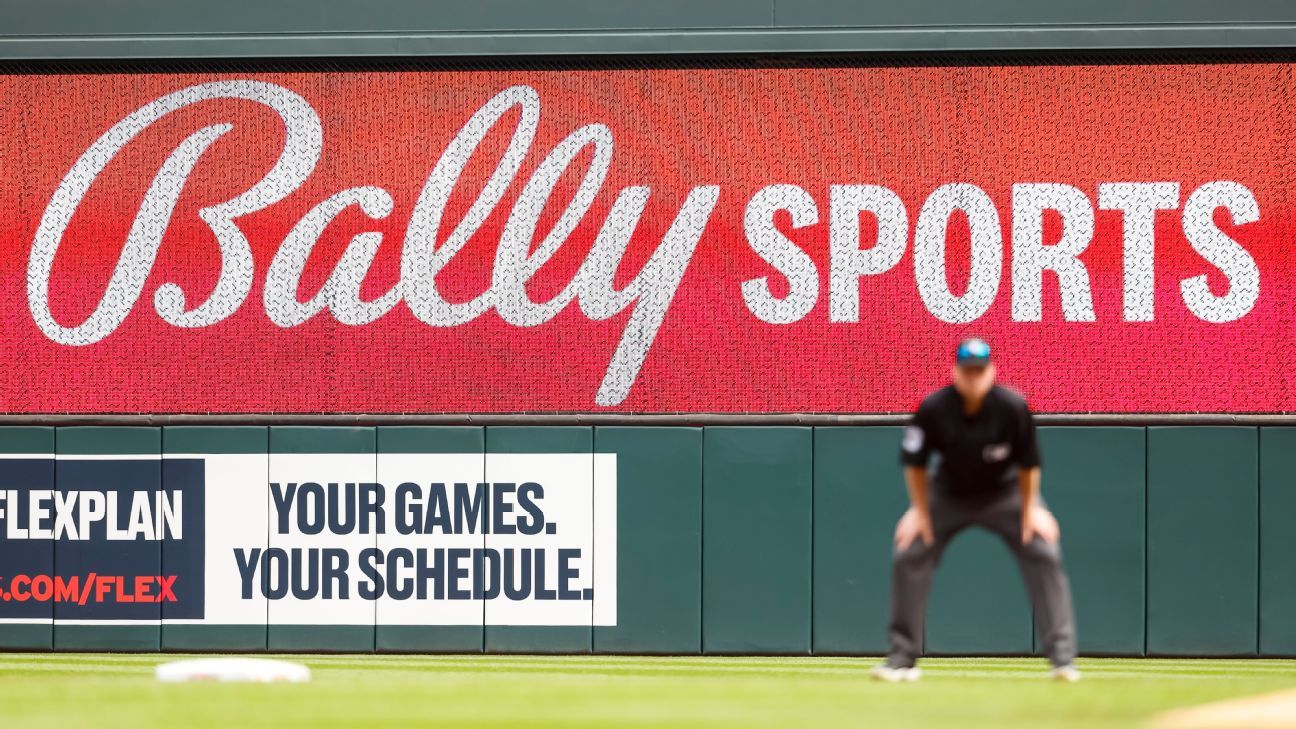Diamond Sports Group, the bankrupt operator of the Bally Sports channels, announced that starting in 2025, it will cease broadcasting games for 11 out of the 12 Major League Baseball teams it currently covers.
The announcement was made Wednesday during a court session, with Diamond confirming it will continue to air games for the Atlanta Braves in the upcoming season.
Among the remaining 11 teams—namely the Cincinnati Reds, Detroit Tigers, Kansas City Royals, Los Angeles Angels, Miami Marlins, St. Louis Cardinals, and Tampa Bay Rays—seven are contracted with Diamond for 2025. These teams will need to negotiate new arrangements with Diamond or seek alternative broadcast operators.
The other four teams currently featured by Diamond this season—the Cleveland Guardians, Milwaukee Brewers, Minnesota Twins, and Texas Rangers—have contracts that expire following the 2024 season.
Editor’s Picks
Teams like the Angels, Reds, Cardinals, Royals, and Marlins are involved in joint-venture agreements that could lead to legal challenges if Diamond terminates its contracts with them.
As reported by The Athletic, representatives from Major League Baseball expressed they were “blindsided” by Diamond’s declaration and felt unprepared to respond adequately.
During the court proceedings, MLB attorney Jim Bromley noted, “We have no information about what is being done. We’ve had no opportunity to review, and now we’re in front of the court and being asked to make our comments,” according to The Athletic.
An insider at Diamond informed ESPN’s Alden Gonzalez that the organization remains optimistic about reaching new agreements with the other 11 teams and has previously submitted proposals to each. Nevertheless, MLB has persistently questioned Diamond’s viability and has not indicated a willingness to engage in new rights negotiations since Diamond filed for Chapter 11 reorganization approximately 19 months ago.
A confirmation hearing has been scheduled for November 14 and 15 in bankruptcy court located in Houston.
On August 23, Diamond secured new contracts with the NBA and NHL that included reduced rights fees, shortly after finalizing a new carriage agreement with Comcast, which positioned Diamond channels within its most premium tier.
Currently, Diamond holds broadcasting rights for 13 NBA teams and eight NHL teams, having recently dropped the Dallas Mavericks and New Orleans Pelicans from its NBA roster.
In a statement, a Diamond spokesperson stated, “Today marks an important step forward for Diamond with the filing of a baseline plan to enable us to emerge from bankruptcy as a viable, go-forward business before year-end. We have delivered proposals to and remain engaged in discussions with our MLB team partners regarding forward-looking plans. We firmly believe that through our linear and digital offerings, we have created the best economic and fan-friendly engine for all of our team partners.”
MLB is planning long-term strategies to unify linear and direct-to-consumer rights under a national framework, viewing it as a necessary transition away from a cable model that continues to face instability. If none of the 11 teams at risk of being dropped by Diamond reach new agreements, MLB—having previously taken over broadcasts for the San Diego Padres and Arizona Diamondbacks after they were dropped last year—could essentially hold broadcasting rights for nearly half of the league.
With local media encompassing about 20% of overall team revenues, Diamond’s plans are likely to introduce greater financial uncertainty for teams, potentially affecting offseason spending.</
Diamond Sports Group to Halt MLB Game Broadcasts for Most Teams by 2025 Amid Bankruptcy Proceedings
Overview of Diamond Sports Group’s Bankruptcy
Diamond Sports Group, the parent company of Bally Sports, has faced significant financial challenges leading to a staggering $8.6 billion debt load. Amid its bankruptcy proceedings, the company is expected to cease broadcasting rights for a majority of Major League Baseball (MLB) teams by 2025. This decision impacts not only the teams but also millions of fans who rely on these broadcasts to stay connected with their favorite players and franchises.
Current Broadcast Landscape
The shift in broadcasting rights comes as MLB teams increasingly seek alternative ways to distribute their games. While Diamond Sports Group has historically held the rights to many teams, the current financial turmoil has forced the company to reevaluate its commitments. The implications of this decision could reshape the way fans consume baseball.
Teams Affected by the Broadcast Halt
As Diamond Sports Group prepares to reduce its commitments, several MLB teams could be impacted. Below is a brief list of teams that have historically been associated with Bally Sports:
| Team | Current Broadcast Network | Expected Future Broadcast Status |
|---|---|---|
| St. Louis Cardinals | Bally Sports Midwest | Potentially Without Local Coverage |
| Cincinnati Reds | Bally Sports Ohio | Potentially Without Local Coverage |
| San Diego Padres | Bally Sports San Diego | Potentially Without Local Coverage |
| Tampa Bay Rays | Bally Sports Sun | Potentially Without Local Coverage |
Impact on MLB Teams and Fans
The impending halt of broadcasts raises critical questions about how MLB teams will adapt to this scenario. Here are some potential impacts:
- Loss of Local Reach: Teams may struggle to maintain their local fan base without consistent television coverage.
- Increased Streaming Options: Teams may pivot towards digital streaming platforms to reach fans.
- Fan Engagement Challenges: Reduced access could hinder teams’ ability to connect with fans, impacting ticket sales and overall engagement.
Potential Solutions for Teams
As the landscape shifts, MLB teams can explore various strategies to mitigate the impact of the broadcasts ending:
- Partnering with Streaming Services: Collaborating with established streaming platforms could provide fans with accessible viewing options.
- Developing Team-Owned Networks: Some teams may consider launching their own broadcasting services to ensure direct access to games.
- Utilizing Social Media: Teams can leverage social media for updates and highlights to maintain fan engagement.
The Future of Sports Broadcasting
The situation with Diamond Sports Group highlights broader trends in sports broadcasting:
- Shift Toward Streaming: The increasing prevalence of streaming services is changing how fans access live sports.
- Consumer Demand for Flexibility: Fans are seeking more flexible viewing options that fit their lifestyles.
- Financial Viability: Networks must find sustainable business models to survive in the competitive landscape.
Case Study: The NBA’s Adaptation
In light of similar challenges faced in the NBA, teams like the Golden State Warriors have successfully adapted by streaming games online and engaging fans through interactive platforms. This transition serves as a potential roadmap for MLB teams navigating their own broadcast dilemmas.
Conclusion
The ongoing bankruptcy proceedings of Diamond Sports Group and the anticipated halt of MLB broadcasts for most teams by 2025 marks a critical juncture in sports broadcasting. The changes present both challenges and opportunities that could redefine how fans engage with baseball in the coming years.
Benefits and Practical Tips for Fans
In this evolving broadcasting environment, fans can take proactive steps to stay connected:
- Explore Streaming Services: Research current streaming options available for your favorite teams.
- Follow Teams on Social Media: Stay updated with real-time highlights and news through official team accounts.
- Engage in Community Events: Attend local watch parties or events to maintain community connections.
First-Hand Experience: Adapting to Change
Many fans have begun experimenting with alternative viewing methods, such as utilizing MLB.TV and other services, to maintain their connection to the game. This adaptability showcases the resilience of the baseball community in face of uncertainty.



